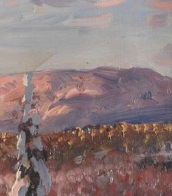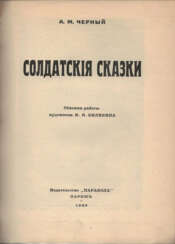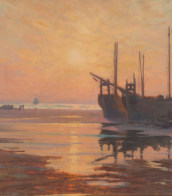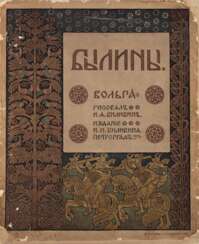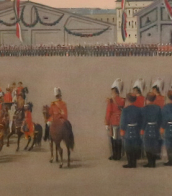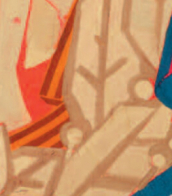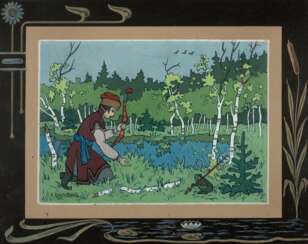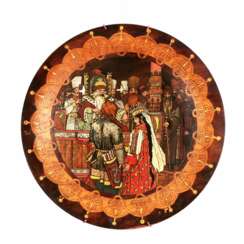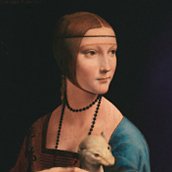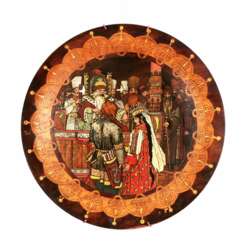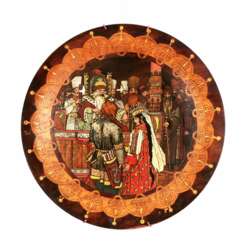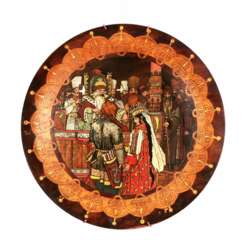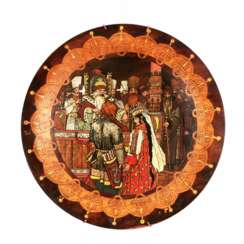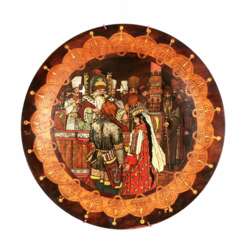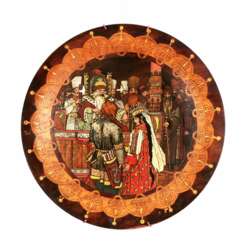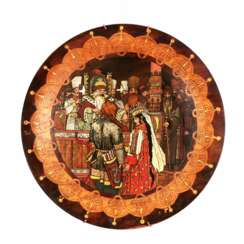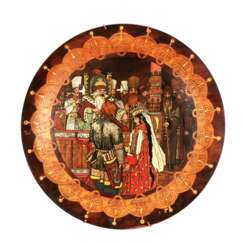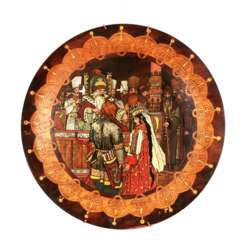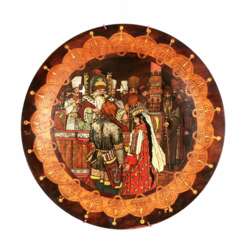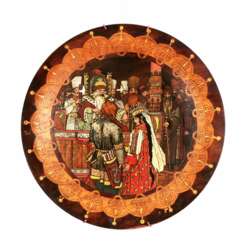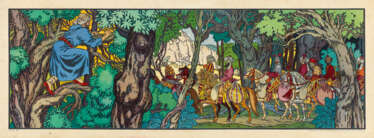иван билибин

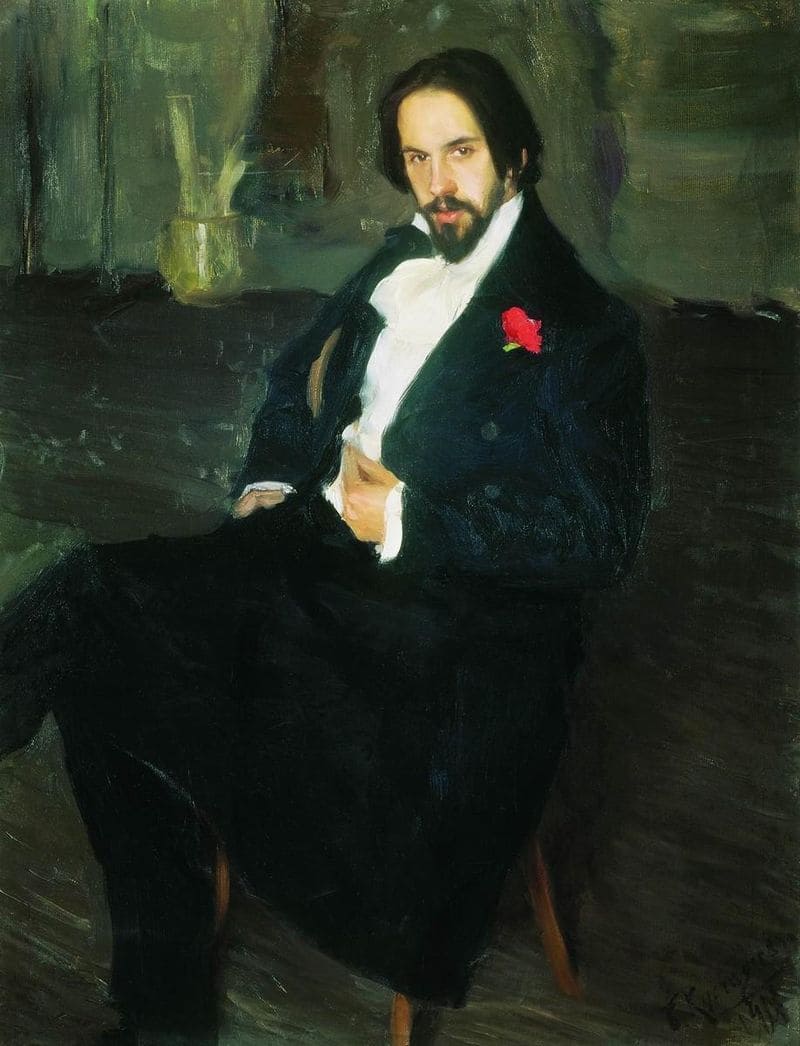
Ivan Yakovlevich Bilibin (Russian: Ива́н Я́ковлевич Били́бин) was a Russian illustrator, stage designer, and teacher, famed for his fairy tale illustrations and stage designs that drew heavily from Russian folklore and traditional art. Born in 1876 in St. Petersburg and passing away in 1942 during the Siege of Leningrad, Bilibin's career spanned a period of great change in Russia, from the pre-revolutionary times through to the Soviet era. His work is celebrated for its intricate detail, vibrant colors, and deep homage to Slavic myths and legends.
Bilibin's journey into the world of art and folklore began after his studies at the St. Petersburg University and the Munich art school. He was deeply influenced by Russian folklore, as well as modern French and Japanese art. This amalgamation of influences resulted in a unique style that made his work stand out. His illustrations for Russian folk tales, such as "The Frog Princess," "Vasilisa the Beautiful," and "Marya Morevna," are among his most celebrated works, encapsulating the essence of Russian narrative traditions.
Bilibin's career was not confined to illustration. He made significant contributions to the world of theater, designing sets for operas and ballets that further entrenched his reputation. His work took him beyond Russia, with periods spent in Egypt and France, where he continued to produce work for the Russian émigré and European communities. Despite the political turmoil of his time, Bilibin remained deeply connected to his roots, returning to Soviet Russia in 1936, where he continued his artistic and academic pursuits until his death in 1942.
For collectors and experts in art and antiques, Bilibin's works represent a bridge between the mystical past and the artistic innovations of the early 20th century. His legacy is preserved in museums and galleries worldwide, offering a glimpse into a world where folklore and art intertwine.
If you are keen to explore more about Ivan Yakovlevich Bilibin's remarkable contributions to art and folklore, consider signing up for updates. This subscription will keep you informed about new sales, auctions, and exhibitions related to Bilibin's work, ensuring you never miss an opportunity to engage with the magical worlds he created.
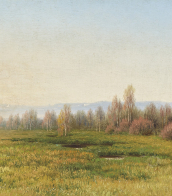

Ivan Yakovlevich Bilibin (Russian: Ива́н Я́ковлевич Били́бин) was a Russian illustrator, stage designer, and teacher, famed for his fairy tale illustrations and stage designs that drew heavily from Russian folklore and traditional art. Born in 1876 in St. Petersburg and passing away in 1942 during the Siege of Leningrad, Bilibin's career spanned a period of great change in Russia, from the pre-revolutionary times through to the Soviet era. His work is celebrated for its intricate detail, vibrant colors, and deep homage to Slavic myths and legends.
Bilibin's journey into the world of art and folklore began after his studies at the St. Petersburg University and the Munich art school. He was deeply influenced by Russian folklore, as well as modern French and Japanese art. This amalgamation of influences resulted in a unique style that made his work stand out. His illustrations for Russian folk tales, such as "The Frog Princess," "Vasilisa the Beautiful," and "Marya Morevna," are among his most celebrated works, encapsulating the essence of Russian narrative traditions.
Bilibin's career was not confined to illustration. He made significant contributions to the world of theater, designing sets for operas and ballets that further entrenched his reputation. His work took him beyond Russia, with periods spent in Egypt and France, where he continued to produce work for the Russian émigré and European communities. Despite the political turmoil of his time, Bilibin remained deeply connected to his roots, returning to Soviet Russia in 1936, where he continued his artistic and academic pursuits until his death in 1942.
For collectors and experts in art and antiques, Bilibin's works represent a bridge between the mystical past and the artistic innovations of the early 20th century. His legacy is preserved in museums and galleries worldwide, offering a glimpse into a world where folklore and art intertwine.
If you are keen to explore more about Ivan Yakovlevich Bilibin's remarkable contributions to art and folklore, consider signing up for updates. This subscription will keep you informed about new sales, auctions, and exhibitions related to Bilibin's work, ensuring you never miss an opportunity to engage with the magical worlds he created.
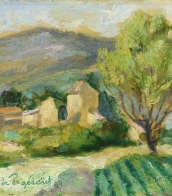

Ivan Yakovlevich Bilibin (Russian: Ива́н Я́ковлевич Били́бин) was a Russian illustrator, stage designer, and teacher, famed for his fairy tale illustrations and stage designs that drew heavily from Russian folklore and traditional art. Born in 1876 in St. Petersburg and passing away in 1942 during the Siege of Leningrad, Bilibin's career spanned a period of great change in Russia, from the pre-revolutionary times through to the Soviet era. His work is celebrated for its intricate detail, vibrant colors, and deep homage to Slavic myths and legends.
Bilibin's journey into the world of art and folklore began after his studies at the St. Petersburg University and the Munich art school. He was deeply influenced by Russian folklore, as well as modern French and Japanese art. This amalgamation of influences resulted in a unique style that made his work stand out. His illustrations for Russian folk tales, such as "The Frog Princess," "Vasilisa the Beautiful," and "Marya Morevna," are among his most celebrated works, encapsulating the essence of Russian narrative traditions.
Bilibin's career was not confined to illustration. He made significant contributions to the world of theater, designing sets for operas and ballets that further entrenched his reputation. His work took him beyond Russia, with periods spent in Egypt and France, where he continued to produce work for the Russian émigré and European communities. Despite the political turmoil of his time, Bilibin remained deeply connected to his roots, returning to Soviet Russia in 1936, where he continued his artistic and academic pursuits until his death in 1942.
For collectors and experts in art and antiques, Bilibin's works represent a bridge between the mystical past and the artistic innovations of the early 20th century. His legacy is preserved in museums and galleries worldwide, offering a glimpse into a world where folklore and art intertwine.
If you are keen to explore more about Ivan Yakovlevich Bilibin's remarkable contributions to art and folklore, consider signing up for updates. This subscription will keep you informed about new sales, auctions, and exhibitions related to Bilibin's work, ensuring you never miss an opportunity to engage with the magical worlds he created.
